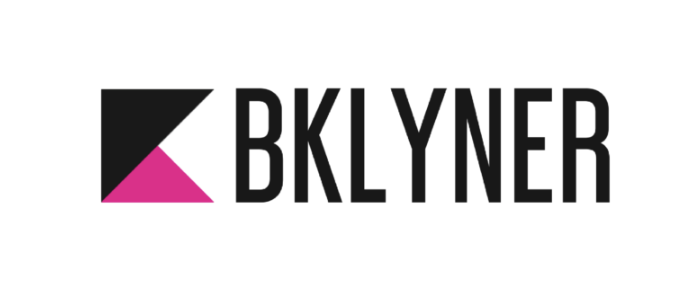Making New York City and State Tax Policy Fairer
For years, New York City’s property tax system has come under fire because homeowners in poor and middle-class neighborhoods often pay more than people who own more valuable homes in tonier parts of town. Mayor de Blasio, who owns two homes in Park Slope. Brooklyn, and benefits from the current tax system, ran for office in 2013 on a platform devoted to ending New York’s “Tale of Two Cities” and vowed early on in his City Hall tenure to do something about property tax inequities. But with less than a year left in his final term, he’s offered the city thin gruel in terms of actual results. Now, as candidates vie to replace him, they’re faced with the same question de Blasio has kicked down the road for eight years: how to make city property taxes more fair, especially when it comes to homeowners in places like eastern Brooklyn, the Bronx and Staten Island who bear a hefty collective burden when it comes to filling the city’s coffers with cash. Tax Equity Now NY, a coalition dedicated to changing city tax policy, has been embroiled in a lawsuit since 2017 that seeks to compel the city and state to make it fairer. After a state appellate court rejected the lawsuit last year, the group now plans to appeal the decision in the state Court of Appeals. Martha Stark, Tax Equity’s policy director, said reform should be a top priority for this year’s crop of mayoral candidates because property taxes don’t just affect homeowners but renters as well because of the taxes passed on to them by their landlords. “Everyone in the city pays property taxes,” she told the Daily News. “Given how much money the city raises from it, it is the most visible example of unfairness that the city has control over, and because they have control, it’s incumbent on them that they make sure they have the fairest tax system possible.” Stark said she doesn’t understand why de Blasio hasn’t done more to fix the property tax system, contending that he’s been well-positioned to do so. “His taxes are really relatively low compared to middle-income and low-income Black and Brown communities,” she said. “Even if you think this is the most difficult thing in the world, it’s disappointing that the mayor didn’t address this because he could have spoken about it from the vantage point of a person who is a beneficiary.” City property taxes pay for services like the police, the Fire Department and schools, but depending on your zip code, you may pay far more, or far less, for a home than someone with a similar dwelling in a different part of town. To illustrate that, Stark used a novel approach. She took city Finance Department and real estate industry data to break down the tax burdens felt by several candidates running for mayor, as well as de Blasio. Stark found that while Brooklyn Borough President Eric Adams paid $2,925 for his four-family Bedford-Stuyvesant home on his most recent tax bill — at an effective tax rate of 0.19% — the average owner of a one-to-three family home in the borough paid $6,708. The average owner of a building with four to 10 apartments paid about $2,600 per apartment annually — almost four times the $730 Adams paid per apartment. For Comptroller Scott Stringer, who rents his apartment, more than $19,000 of his annual bill goes to covering his landlord’s average property tax per apartment — at a tax rate of more than 5%. The effective rates Stark used were calculated by taking the taxes and dividing them by the property’s value. For Ray McGuire, a former Citigroup exec, Stark estimates the annual property tax bill for his Central Park West co-op comes to nearly $100,000 — a 0.44% tax rate. De Blasio shelled out $4,467 for his Park Slope home — $2,000 less than what other Brooklynites with comparable dwellings might pay, her analysis found. Andrew Yang, who rents in Manhattan, pays slightly more in taxes than what homeowners citywide typically pay for a one-to-three-family home — the average is $6,835. According to Stark’s analysis, Yang can expect to pay $8,903, at an effective rate of 4.22%. The News recently asked eight of the top mayoral contenders to discuss the implications of such an uneven system — and their plans to change it. Here’s what they said: SCOTT STRINGER Stringer, who as comptroller serves as the city’s top fiscal watchdog, said reforming the system would be “one of the top priorities to accomplish during my first term.” “My office previously found that for low-income homeowners, the burden of property taxes nearly doubled between 2005 and 2016,” he said. “The inequities in the system are a driver of our affordable housing challenges.” To change it, he intends to “explore” offering income tax credits to homeowners and renters to make the system more equitable and to ease their financial burden. But for the system to truly be changed, state lawmakers will have to make “an all-hands effort.” Stringer wouldn’t say whether the reforms he’d attempt would be revenue neutral — meaning that total tax collections would be at the same level — but said “as a city we have to be thoughtful about how we bring reform, so that we advance equity without hurting revenues that would lead to diminished services.” It’s also unclear if he’d continue to oppose Tax Equity Now NY’s lawsuit if elected mayor, but he said addressing the issue through engaging tenants, owners and other stakeholders — rather than the courts — “is the best way to go.” RAY McGUIRE McGuire, who served as Citigroup’s vice chairman before running for mayor, said he’d reform the property tax system gradually. He wants to ensure all homeowners “pay their fair share,” but without using a one-size-fits-all approach. “For some properties, a sales-based methodology could be more effective,” he said. “But we need to be careful how we implement such a change so that we don’t devalue homes or encourage a mass exodus.” He took aim at state property tax law, which values co-ops and condos “as if they were rental properties.” McGuire said he’d work to change it and would seek a revenue-neutral approach to reform. “My approach would be to fix our property tax system through legislative action in Albany, and I would hope that the Tax Equity Now coalition would trust me to get that done,” he said. KATHRYN GARCIA Garcia, who served as de Blasio’s sanitation commissioner, said she would “immediately” begin to reform the city’s property tax system. “Our current system isn’t fair, and I believe in treating people fairly,” she said. Garcia wants to transform it into a system that’s based on “true market value,” not the “complicated assessment formula” now in place. She said she’d guard against homeowners being priced out of their neighborhoods by gradually phasing changes in and stepping them up once properties are sold. Condos and co-ops, which are often taxed at lower rates than standalone homes, should be taxed at the same rate as one-to-three-family homes — but longtime residents, seniors and people living on fixed incomes would also need protection from related increases, she said. Garcia agrees with Tax Equity Now NY when it comes to its lawsuit, and said that “if they appeal, I will review their argument with a fresh set of eyes.” ANDREW YANG Yang, who ran for president last year, is planning to release his property tax plan in the coming weeks. He declined to answer several questions posed by The News, but suggested the current system is in need of change. “The current property tax system is not only unfair, it also leaves untold hundreds of millions of dollars on the table that the city desperately needs from places like [Madison Square Garden], and tax-exempt institutions like private universities that have multibillion-dollar endowments,” he said. “Far too many New Yorkers pay too much, while others who can afford to, pay far too little.” ERIC ADAMS Adams also declined to answer specific questions from The News. But his spokesman Evan Thies said the former NYPD captain believes “New York City’s property tax system is fundamentally unfair, and that long-overdue changes must be made to ensure the wealthy pay their fair share.” “Eric would push for changes that shift the tax burden off of renters and homeowners in less affluent areas to the owners of pricey apartments in wealthy areas,” Thies said. “Right now, billionaires are paying a fraction of the property tax rate that working-class folks are — and that’s just wrong.” MAYA WILEY Wiley, de Blasio’s former legal adviser, praised the Property Tax Commission her former boss created four years ago. The commission, which recommended changing the way taxes on condos and co-ops are assessed and forgoing caps on tax hikes for small homes, is expected to make a final report before the end of the year, but so far hasn’t made any changes to how the city levies taxes. “I would follow the commission’s lead and propose a plan that is revenue neutral,” she said. “But the wealthy should pay their fair share, which is why I’m proposing raising property taxes on the wealthiest New Yorkers.” Wiley also emphasized the need to partner with state lawmakers to enact changes in Albany and said she would “lead with clear principles and work with anyone who will work with me to turn those principles into reality.” DIANNE MORALES Morales, a former nonprofit executive, called the current property tax system “deeply inequitable and fundamentally unfair.” “Like most systems this city operates within, especially those tied to housing, the property tax system is rooted in structural classism and racism,” she said. She would attempt to take control of property taxes away from the state and shift the burden from low-income renters “to wealthier homeowners and landlords, while ensuring that low-income homeowners still get relief.” Morales would drop the city’s opposition to the Tax Equity Now suit, and said that to prevent landlords from passing the tax burden on to renters, she’d make decreased taxes contingent on landlords lowering rent. SHAUN DONOVAN Donovan, who served as Mayor Mike Bloomberg’s housing commissioner and as Housing and Urban Development secretary under President Barack Obama, said the property tax system, as is, treats renters and homeowners “very differently based on the color of their skin and/or where they live.” “My focus is really on making the system simpler and more transparent, but also more equitable, so that we are not disproportionately putting the burden of property taxes on rental housing, particularly in the lowest income, Black and Brown communities,” he said. “My plan would be revenue neutral, which means that by making our system more equitable we would ensure that others are paying their fair share.” He said that if elected, the city would stop fighting Tax Equity Now’s lawsuit. Donovan wouldn’t commit to a reform time frame, but said it would be a “top priority” he’d aim to accomplish within four years. He plans to work with the state to expand existing tax relief programs and ensure homeowners above a certain age, and below a certain income threshold, wouldn’t get cheated by reform measures. “Older, disabled and low-income homeowners with fixed incomes should receive exemptions if they cannot afford their property taxes,” he said. NYC mayoral candidates weigh in on changing unfair property tax system






